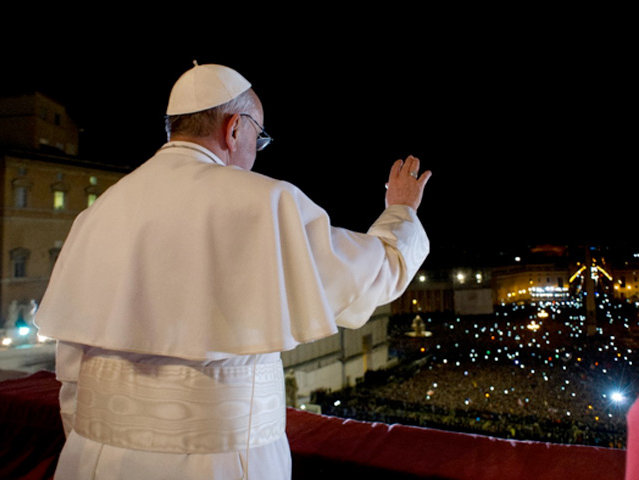I have often explained that the reason I will never be president – aside from how, deep down, I really hate people and would just never get through a campaign – is that I'm a fairly public atheist. You know us atheists; we rank just below Muslims, child-rapists, and congressmen on the scale of who people would be willing to vote for.
But some weeks it's harder than others to keep my non-believing chin up. This was one of those weeks.
And I'm not talking about the Church of Satan statue in the news, the disturbing goat-man sculpture in Oklahoma that is trying to make a point about separation of church and state but is really making a different point entirely, I think. No, that's bad, but not what's upsetting.
We can start with the U.S. Supreme Court's decision upholding secular prayer at government meetings.
For the most part, that kind of mild public display doesn't really bother me. If I'm somewhere this is happening, I tune it out, the same way I just don't say the words "under God" when I recite the Pledge of Allegiance and I'm perfectly fine spending money that says "In God We Trust."
Indeed, I find it kind of ironic and take a perverse joy in it all, as everything I learned in church growing up about the New Testament Jesus makes me pretty sure that if He really exists, He's probably furious that his followers are praying in public and putting His father's name on their money. But whatever.
Still, there's a difference between tolerating these generally unobtrusive things and being told by the highest court in the land that me and my atheist brethren can, in essence, suck it. No matter how explicitly Christian the prayers get, the Court said, and no matter if the people delivering the prayers start mocking or insulting non-believers, as happened in the case in question, we atheists have no right to complain, period.
Justice Clarence Thomas, who has long been angling to hyper-Christianize the nation, went further in his concurring opinion, basically declaring that the Establishment Clause – that part of the First Amendment that says the government can't establish a state religion – doesn't apply to individual states or municipalities. If Wisconsin wanted to establish a Church of the Cheddar, in Thomas's opinion, ain't nothing to be done about it. (As I am a lactose-intolerant atheist, the Church of the Cheddar would be doubly upsetting to me.)
Luckily, Thomas's view seems to be in the extreme minority among legal scholars, and he couldn't even get any of his fellow Justices to sign on to that part of his opinion. Still, the fact that such hostile (hostile to people like me, anyway) sentiment exists not just among the fringes of the Christian right but on the Supreme Court is worrisome.
The other thing that made it hard to be an atheist this week was this from Pope Francis. Francis, the most liberal pope in my lifetime, is making it really hard for me not to want to be a Catholic, especially when he says things like this:
On Friday, Francis called for the United Nations to promote a "worldwide ethical mobilization" of solidarity with the poor in a new spirit of generosity. He said a more equal form of economic progress can be had through the legitimate redistribution of economic benefits by the state, as well as indispensable cooperation between the private sector and civil society.
The other reason, besides me being an atheist, that I could never get elected president is that this is the kind of economic philosophy I would bring to the office. It makes me viscerally angry that the richest country in the world has so many people – so many children, especially – living in poverty. Last week was also teacher appreciation week, and my Twitter feed was pretty excited about this piece of data journalism from vox.com, that the top 25 hedge fund managers in the U.S. earned, collectively, more than double every single kindergarten teacher in the country put together.
This seems criminal to me, and the Francis's gospel of "resisting the economy of exclusion" sounds pretty good to me about now.
As a bonus: I imagine Catholics over the country, folks like noted poor-shamer Paul Ryan, reading Francis's words and having their own little meltdown. That's the kind of schadenfreude that could almost make a guy like me believe in God.







